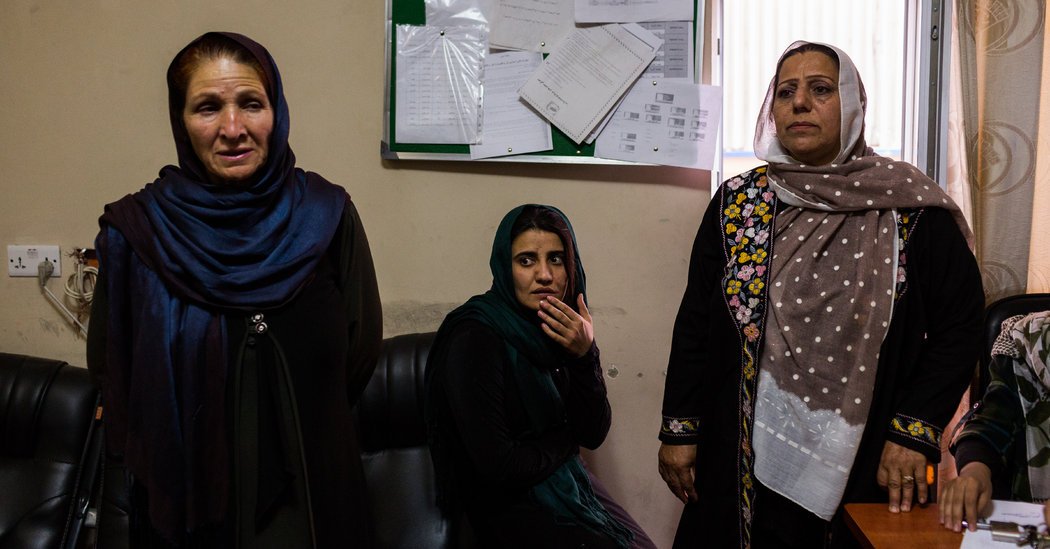
Conservative figures in the government, including Islamic preachers or mullahs serving in Parliament, have bristled over the shelters for years and see them as foreign meddling and an imperialist imposition on Afghan culture.
Those operating the shelters say officials are also angered that connections and bribes that grease other government affairs have mostly proved useless for fathers or husbands seeking to retrieve women from the independent shelters. Entrusting the shelters to a ministry would rob women of their only defense against so-called honor killings, they say.
Western embassies, for whom modest advances in women’s rights are a tangible success of the war even amid battlefield setbacks, have blocked previous government efforts to roll back protections.
The Parliament came close in 2011 to passing harsh limitations on the shelters, and in 2013 it tried to gut a law barring violence against women. Lawmakers backed down under pressure from the European Union and United States.
The Ministry of Women’s Affairs has sought financial control over the shelters before, also in 2013. Then, the private donors from the United States, and also European and American government agencies, strongly objected.
Credit
Jim Huylebroek for The New York Times
But as the Western presence winds down, the Afghan government has a freer hand, and it is unclear how Western governments will respond today. A spokesman for the American Embassy declined to comment.
Efaf Benafsha, a province manager for Women for Afghan Women, a group that runs 26 shelters and other aid sites that serve about 5,000 women a year, the country’s largest network, said donors opposed the plan. “They don’t have enough trust” in the ministry, she said.
“People are calling them centers of prostitution,” she said. “We are hearing this from the government.”
Nabila Musleh, a deputy minister of women’s affairs, said that her ministry was obliged to defend the shelters from their opponents in Parliament and other ministries and that having control over their finances would ensure that the nongovernmental organizations running the shelters were in turn responsive to the ministry.
“If the donor community is interested in providing financial support for women protection centers, they can do it through the government,” she said in an interview.
The ministry, she said, has struggled to arbitrate between foreign donors to the shelters and conservative members of the government, who are deeply critical of the sites, where women live unsupervised by men, and have spoken darkly of them as brothels.
“The nature of the complaints is that women are being misused at the women protection centers, in different ways,” she said. Those objections include that the women are “sometimes sexually misused.”
Ms. Musleh conceded, however, that no evidence had ever emerged that the shelters were prostituting abused women. The allegation is continually raised, endlessly infuriating women’s rights advocates. Still, she said, the government needed more direct control as a means to refute the brothel rumors.
Government control would also ease access for women at the shelters to state-run mental hospitals, she said, and allow the government to open shelters in unstable regions where nongovernmental groups do not venture.
The Women’s Ministry drafted the proposal to take over financing of the shelters, which would change a decade-old decree legalizing the facilities. The cabinet has considered but not yet adopted it.
Afghan culture, said Ms. Benafsha, of Women for Afghan Women, still lags behind the laws protecting women that Western nations pressed the government to pass. In large parts of Afghanistan, daughters are still considered chattel property, to be traded to settle debts or blood feuds, a practice known as baad, or married off to strengthen familial alliances.
“We talk to the husbands,” Ms. Benafsha said. “When we ask, ‘Why do you beat your wife?’ They say, ‘This is my right.’”

Hello ,
I saw your tweets and thought I will check your website. Have to say it looks very good!
I’m also interested in this topic and have recently started my journey as young entrepreneur.
I’m also looking for the ways on how to promote my website. I have tried AdSense and Facebok Ads, however it is getting very expensive. Was thinking about starting using analytics. Do you recommend it?
Can you recommend something what works best for you?
Would appreciate, if you can have a quick look at my website and give me an advice what I should improve: http://janzac.com/
(Recently I have added a new page about FutureNet and the way how users can make money on this social networking portal.)
I have subscribed to your newsletter. 🙂
Hope to hear from you soon.
P.S.
Maybe I will add link to your website on my website and you will add link to my website on your website? It will improve SEO of our websites, right? What do you think?
Regards
Jan Zac